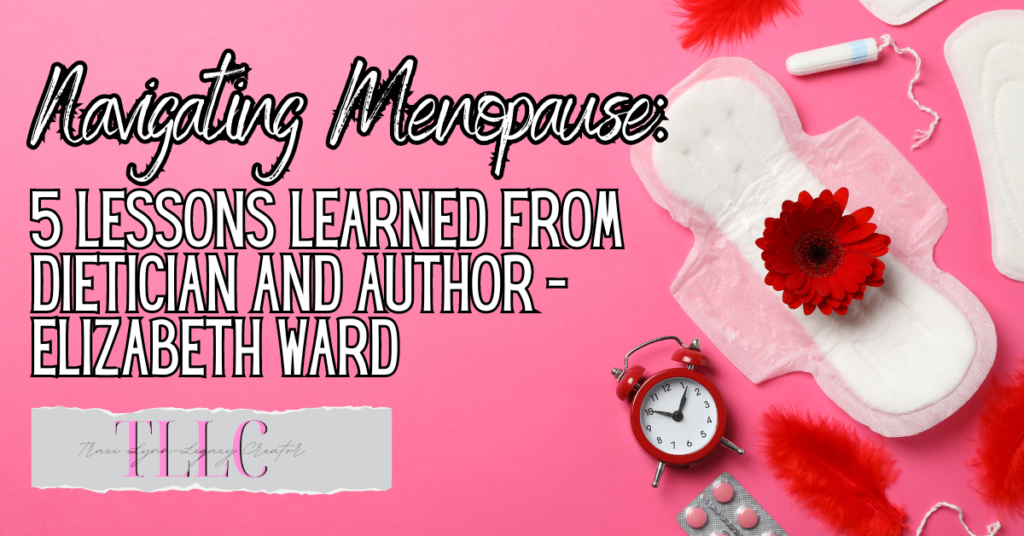As we journey through different phases of life, each stage brings unique experiences and lessons. In a recent episode of the Age Slayers with Traci Lynn podcast, I sat down with Elizabeth Ward, co-author of “The Menopause Diet Plan.” Elizabeth and I discussed the challenges and opportunities associated with menopause, and I gathered some incredibly insightful lessons that I wanted to share with you. Here are the top five takeaways from our enlightening conversation.

Lesson 1: Embrace a Plant-Based Diet with Adequate Protein
One of the key points Elizabeth emphasized was the importance of a plant-based diet, rich in fiber and antioxidants, for overall health during menopause. She stressed that while it’s crucial to focus on plant-based foods, getting enough protein is equally important to support muscle health and maintain a healthy metabolism. Including foods like beans, lentils, tofu, and quinoa can make a world of difference.
Lesson 2: Accept Bodily Changes as a Natural Transition
Who here doesn’t recognize themselves when looking in the mirror? (me raising my hand!) As you may have heard or witnessed, peri-menopause/menopause often leads to bodily changes such as weight gain, especially in the belly area, and changes in skin texture due to lower estrogen levels and reduced collagen. So much fun! (rolling my eyes) Put this challenge under the column of “Things I never thought i’d be old enough to experience”. But Elizabeth’s perspective is to accept these changes as part of a natural life transition. Acknowledging and understanding that these changes are a normal part of aging can help us approach this phase with grace and resilience. I’d like to add that you also approach it with a vengeance!
Lesson 3: View Menopause as an Opportunity for Reassessment
Elizabeth presented menopause as a prime opportunity to reassess our health habits and lifestyle choices. This is the time to focus on bone, heart, brain, and joint health. By making proactive changes—such as incorporating more physical activity, prioritizing sleep, and consuming nutrient-dense foods—we can significantly impact our long-term well-being.
Lesson 4: Manage Symptoms Holistically
Menopause may bring symptoms like weight gain, sleep problems, hot flashes, and cognitive changes – (To add to the fun!) Elizabeth underscored the importance of managing these symptoms holistically. This can range from hormone replacement therapy under a physician’s guidance to natural approaches like adequate nutrition, stress management, and regular exercise. Hormone testing during this transition can often be inconclusive, so listening to your body and addressing symptoms directly is crucial.
Lesson 5: Skin Health and Aging
During our discussion, Elizabeth also touched upon maintaining youthful skin. Factors like increased intake of antioxidants, wearing sunscreen, avoiding smoking, limiting alcohol, and ensuring adequate sleep can slow down the skin aging process. These lifestyle habits not only benefit skin health but contribute to overall well-being, which is essential during the menopause transition.
Reflecting on my conversation with Elizabeth Ward has given me a deeper understanding of menopause and the ways we can navigate this life stage with informed choices and a positive mindset. Each lesson learned serves as a reminder that menopause, while challenging, is also a phase filled with opportunities for growth and self-care.
For more detailed insights and practical advice, I encourage you to listen to the full episode with Elizabeth Ward on the Age Slayers with Traci Lynn” podcast. You can also check out her book, “The Menopause Diet Plan,” available online and in bookstores.
Until next time, remember that every stage of life is a journey. Let’s navigate it together, one lesson at a time.